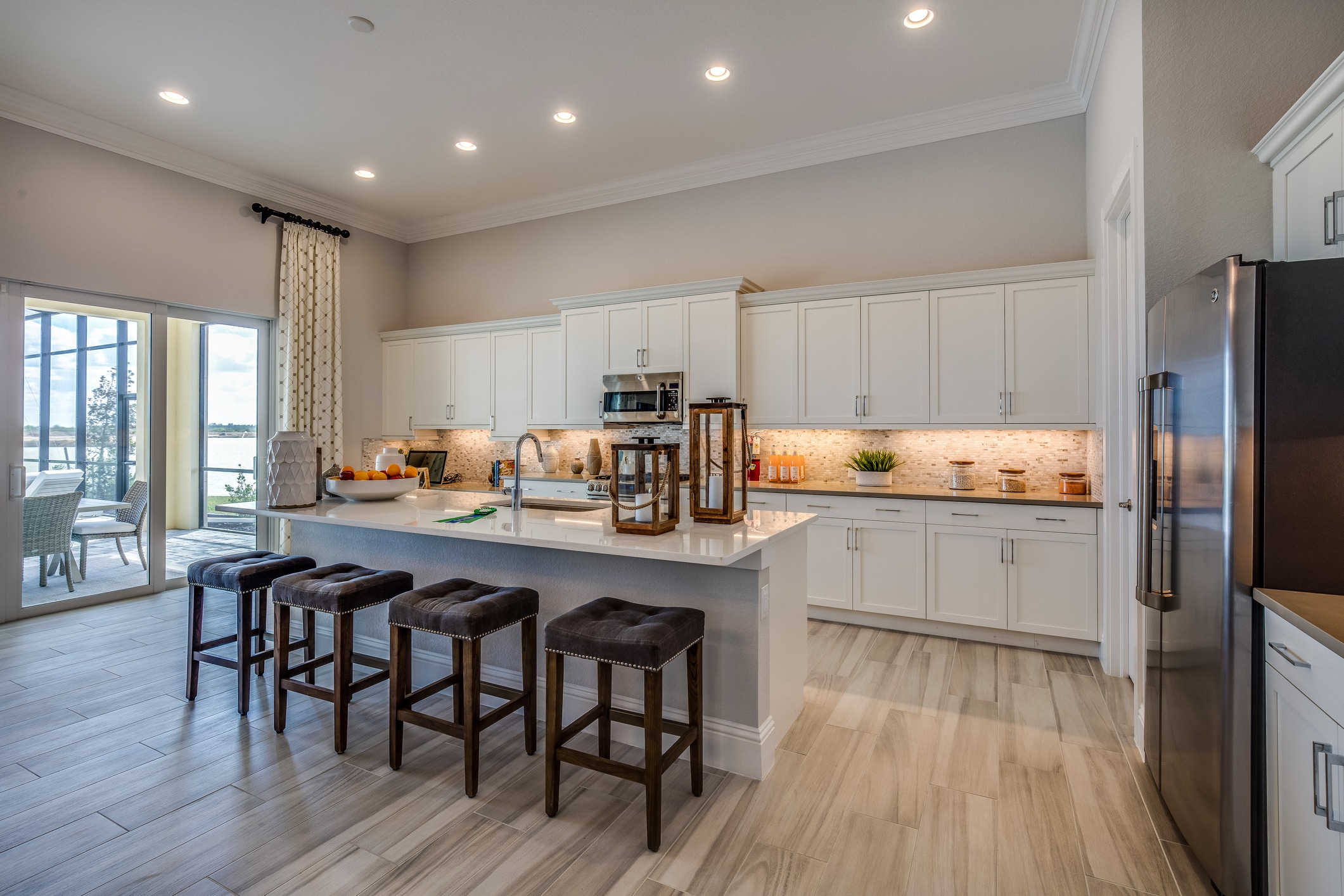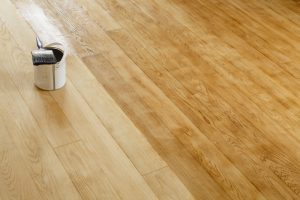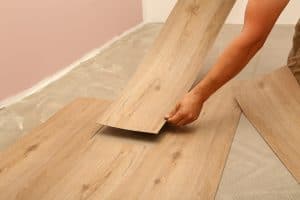How do you feel about your kitchen floors? Do they add to the look you want to create? Are they outdated? Do they have water damage? Are they comfortable for extended periods of standing?
Outdated Flooring
Many of us, especially people with older homes, have outdated kitchen floors. Maybe you still have old-school sheet vinyl flooring in your kitchen. Lots of people in older homes still have this style, which was the high-tech waterproof alternative decades ago. If you do have an older vinyl floor, it may be worn in areas, curling, or simply look out-of-date.
Perhaps you have hard tiles in your kitchen. Ceramic tiles were the epitome for style for decades after people lost their enthusiasm for laminate and began to embrace natural materials. These floors are a great choice for wet areas like kitchens, but can lead to foot, knee, and back pain if you do a lot of cooking and standing.
Now is the time to upgrade your kitchen flooring. Today’s flooring alternatives give you plenty of options to create the kitchen of your dreams.
What type of floor should you choose for your kitchen? Honestly, it depends on how you use your kitchen, your home’s design, the look you want, and your budget.
Vinyl Plank Flooring
Luxury vinyl plank (LVP) is one of our top picks for the modern kitchen. LVP is a waterproof option, making it great to use in wet areas like kitchens. It comes in a wide array of patterns and is known for its ability to mimic the look of hardwoods and stone floors. It is easy-to-care for, not requiring the babying and TLC of some other flooring surfaces. It has built-in cushioning, so it is easier on legs, knees, and backs than tile floors. Finally, it offers cost savings over some other products.
Tile still remains a go-to for kitchen floors. Tile floors are tough, standing up to years of abuse in even the most demanding of kitchens. Tiles come in natural stone colors that are great for most kitchen décor themes. They are also heat-resistant and waterproof.
Hardwoods are a surprisingly popular choice for kitchens. Many people assume that hardwoods cannot go in kitchens because of the risk of water. However, properly sealed hardwood floors are actually water resistant. Unless you have a flood, as long as you clean up water in a reasonable time, they can stand up to the drips and drops you get in a normal kitchen. They bring a cozy warmth to any room, which can make your kitchen look homey and inviting, while still looking high-end and modern.



